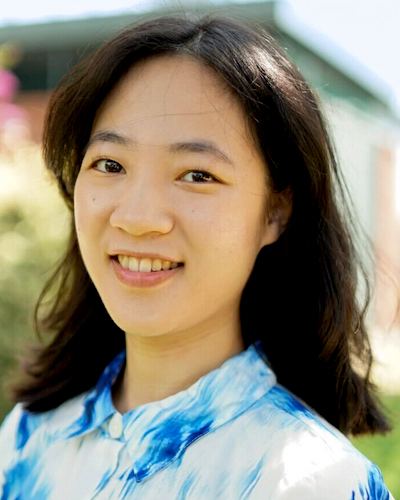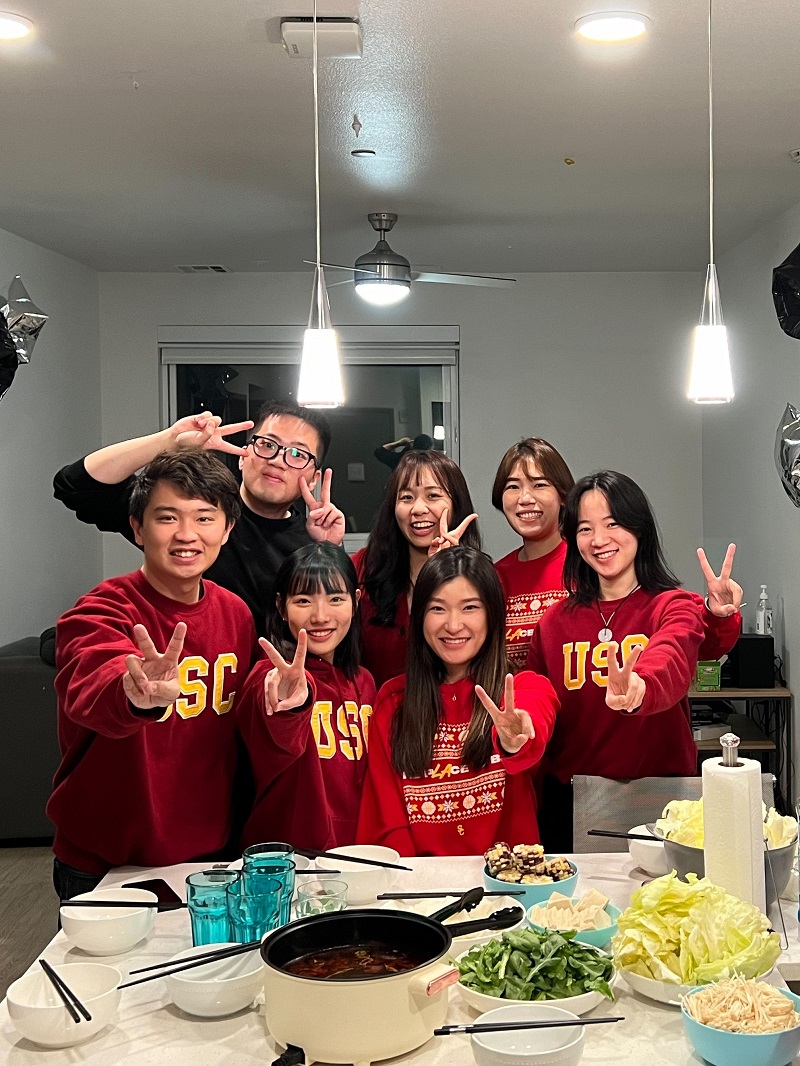Lunar New Year Away from Home

February 26, 2024
by Cindy
Speaking of the New Year, the first thing that came to my mind is not January first but the Lunar New Year. It is not the end of the Christmas break, but the holiday week takes place roughly at the end of January and the start of February. This year, the Lunar New Year is a time for reconstructing meaningful rituals.
I came from a not-so-traditional Taiwanese household. I did not go to temples to ask for blessings for my family in the coming year and watch the dragon and lion dances. I did not set off firecrackers with my family at midnight. On Lunar New Year’s Eve, I did not have a traditional Lunar New Year dinner, a feast of numerous dishes that have meanings and blessings. I did not need to visit my mother’s family strictly on the second day of the Lunar New Year. I did not have so many relatives and friends of our family that we needed to visit and wish them a happy new year with witty haikus to get red envelopes.
Although my Lunar New Year celebration does not have all the Chinese and Taiwanese customs, I have always spent this time with my parents and brother. Always. We would have a hotpot as our Lunar New Year dinner at my grandma’s place. We would play mahjong (麻將) while watching the Lunar New Year gala on TV. We would complain about listening to Lunar New Year songs on repeat everywhere we go. We would go camping, go to the movies, go hiking, etc. It was a week when we were all home and spent this blissful time together.
I have never realized the meaning of the Lunar New Year in my life until this year. I am not in Taiwan with my family anymore. As I approached February tenth, the grief of loss started lurking in. I kept searching for the scenes I used to overlook: red lanterns and spring couplets at every door, random firecrackers in the middle of the night, people cleaning their windows in the yard, old furniture sitting in the lobby of the building waiting to be picked up by recycling trucks, and candies stacked in plastic boxes on sale at hypermarkets. I miss the smiles on people’s faces when they greet each other with “新年快樂 (Happy New Year)” and “恭喜發財 (Wish you prosperity and wealth).” Happiness flowed through every corner. The atmosphere is radiating red and gold. It was so joyous that the time paused and celebrated with us.
My tears sat with me, recalling those memories in the peaceful atmosphere of LA. The atmosphere was so quiet, as if time disappeared. At that moment, I realized the significance of the Lunar New Year in my life. I knew I needed to celebrate the Lunar New Year in new but meaningful ways.
On the day before New Year’s Eve, the Global Initiatives Office celebrated the Lunar New Year just like they would celebrate festivals from different cultures. The Global Initiatives Office prepared tangyuan (湯圓), oranges, and red envelopes. In addition, all my Taiwanese classmates came to our house and had the Lunar New Year dinner that night. We ordered soup base, sliced meat, meatballs, and vegetables online to make a hotpot. Everyone brought Taiwanese cuisine to share: candied fruit, rice wine drunken chicken, and Taiwanese cookies. We cooked the hotpot and ate at the same table. We shared all the interesting clinical experiences we had. We played mahjong on our phones. We ate together, laughed together, and missed our Lunar New Year rituals together. When I said goodbye to everyone at 12:30am, I thought with a big smile: “This feels like Lunar New Year.”
I learned that celebrating festivals is an integral part of my identity. Those festivals are my culture, values, and how I measure a year. In addition, the festival celebrations in my life are memories that shaped me, representation of social connections, and a part of my life narrative. I am so glad that in Los Angeles, at USC Chan, it is not hard to find people with the same cultural background as mine. I am also grateful that the Chan division put in so much effort to celebrate festivals valued by different groups of people. Celebrating our festivals gives us a chance to be seen and accepted. In this new year, I can try to maintain and reconstruct my festival celebration rituals and make them as meaningful as I have enjoyed them.

My Taiwanese classmates and me having a hotpot
⋯
Next by tag International ⟩ Living in LA ⟩
⋯





